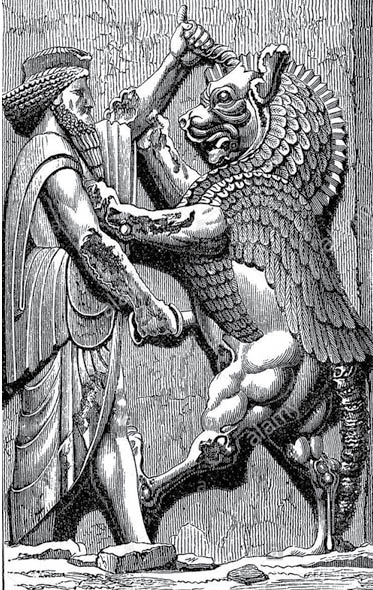The year 2020 has been a challenging one. There has been loss of life and there has also been loss of livelihood. There has been anxiety, anguish and even a degree of anger which stems from helplessness or our inability to be in control of the situation. However, the best and probably the only antidote for that feeling of helplessness is hope. Hope is an optimistic state of mind that is based on an expectation of positive outcomes with respect to events and circumstances in one’s life or the world at large.
They say a person needs just three things to be truly happy in this world – Someone to Love; Something to Do; and Something to Hope For. Hope is a powerful force. It inspires us to do the impossible and assists us in moving on during difficult times. Hope comes in different shapes and forms. It may come through reading a good book or a poem. It may come through listening to a song or reading a message from a dear one. However, hope mostly stems out of wisdom, faith and experience.
Unpredicted Adversity: American novelist and journalist, Margaret Mitchell felt, “Life is under no obligation to give us what we expect.” This is so true. Most of us began the year 2020 on such a happy and positive note. Almost every well-known astrologer predicted that the year 2020 would be a good one. They were all proven wrong as the pandemic eclipsed all hopes and expectations, the world over.

Harness Positive Energy: Neither astrologers nor scientists really know when this pandemic will end. But there is hope and there is faith that there will be light at the end of this long, dark tunnel. Hope by itself is neither a strategy nor a solution. The light that will leads us out of the darkness is the positive energy that comes to surround those who continually search for what life has to offer. The answer is always within. By harnessing this positive energy, one can accomplish anything. In the words of Rabindranath Tagore, “Faith is the bird that sings when the dawn is still dark.”
Martin Luther King Jr. believed that only when it is dark enough can you see the stars. This too is true because there is always a lesson to be learned from adversity. We all have learned many such lessons the hard way and have often found that the bitterest moments of our life have only made us better. Oscar Wilde believed, “Behind every exquisite thing that existed, there was something tragic.”
Message Of Hope In The Gatha: Zarathushtra’s Gatha are life affirmative and speak about life in totality. Zarathushtra does not talk about salvation he talks about happiness. He does not speak about saving you or your soul, he expects you to be your own savior by exercising enlightened choices. Zarathushtra wants his followers to live an ordinary, but, active, industrious life with extraordinary intensity and passion. He does not want us to fear God; he wants us to befriend God. He does not want us to please God; he wants us to be pleased with our own enlightened or well thought out choices. He does not encourage pain and misery in this world with promise of a better world after death. Zarathushtra talks of the here and now and about attaining happiness in this world itself, mainly through making others happy. This is what makes Zarathushtra and His message stand out and stand apart.
The Choice: The Gatha speak of the twin mentalities and choices we all must make using our ‘sucha managha’ or ‘illuminated mind’. Zarathushtra advises:
“Hear with your ears the highest Truths,
Consider them with clear thought,
Before deciding between the two paths,
Man, by man, each one for himself“.
Zarathushtra speaks here about the moral and ethical choices each one of us must exercise with clear thought or an illuminated mind. And, once we make a decision, we have to be responsible for its consequences. No savior can come to our rescue except our own good thoughts, words and deeds. And hence the Prophet, in reference to these two paths states, “And of these two, the wise do choose what’s right; the unwise choose not thus.”
Perfecting Imperfection: The Ushtavaiti Gatha, which embodies happiness, celebrates the Zoroastrian precept of friendship with God. In Ushtavaiti Gatha, Yasna 46.2, Zarathustra says: “Rafedhrem chagvaao hyat fryo fryaai daidit, Aakhso vangheush ashaa ishtim manangho.” Meaning (as translated by Prof. Stanley Insler): “Take notice of it, Lord, offering the support which a friend should grant to a friend. Let me see the power of good thinking allied with truth!”
Here Zarathushtra does not see the Supreme Divinity as the Master or the Lord or as Father or someone to fear, but sees Ahura Mazda as a beloved friend to talk to in times of distress and to love Him and seek His support to perfect this imperfect world with friendship based on good thinking allied with Truth.
These are distressing times. But now is also the time to befriend Ahura Mazda, to seek His friendship and work towards perfecting some imperfections in this world, starting with our own imperfections.
Choose Hope With Wisdom: The Pahlavi Dinkard (Book 3) asserts: “Be it known that, whatever wisdom and happiness exist now, are owing to the principles that give strength of wisdom and the power of happiness. Among these, by means of the proper power appertaining to the soul, Ohrmazd reaches into the heart of the acquirer of wisdom, and the power of obtaining the wishes, reaches into the heart of the acquirer of wisdom. And on that wisdom reaching into the mind, a path is found by the mind that is obedient to Ohrmazd and is pure, to see what relates to the invisible; and so, man becomes worthy of fresh and superior happiness.”
It is interesting to observe that acquisition of wisdom goes hand in hand with happiness. One who is wise is also happy. Divinity enters the heart of the acquirer of wisdom and makes that individual experience “fresh and superior happiness.”
Angra Mainyu – A State Of Mind: Mainyu is variously translated as ‘Spirit’, an abstract energy or ‘Mind’ (Sanskrit mana or mind). Angra is viewed as destructive, chaotic, disorderly, and inhibitive. One of the chief manifestations of Angra is destruction which arises from anger and, anger is a state of the mind. Thus, Angra Mainyu is a destructive, chaotic, disorderly and inhibitive state of the mind which often manifests into anger and destruction of all that is good, the antithesis of Spenta – which is good and bounteous. A more personalized embodiment of evil is ‘Ahriman’. Angra Mainu or Ahriman, both are in eternal conflict with all that is good and bountiful.
Angra Mainyu Is Only A Shadow: Theologically Angra Mainyu is limited to material space and time and at the end of time, Angra Mainyu will be finally defeated or simply disappear because Angra Mainyu is akin to a shadow. A shadow is simply the absence of reflected light. It is impossible to prove shadow as a standalone object. Scientifically speaking, shadow exists only in relationship to a light source, a disrupting object and an object in the background.
In other words, if Truth is light and the mind is the disorderly obstructive object, what is seen in the background of life is the shadow of the devil. But, let the light of truth shine through a mind attuned to that light (of truth) and there would be no obstruction and no shadow can be seen in the background of life. There would be just light! Little wonder that certain Pahlavi texts view Ahriman as ‘non-existent’!
Positive Assertions: Affirmations are positive statements which can help us challenge and overcome self-sabotaging, negative thoughts. Affirmations are not wishful thinking or empty hope. Daily repetition can reprogram one’s thinking patterns and over time, one actually begins to think and act differently. Therefore, more than just hope, let us affirm that we shall stay attuned with our good mentality and reject all dark mentality. Let us reaffirm that evil has no real existence. Evil is simply the absence of good, just as darkness is absence of light.
When we choose light, we automatically reject darkness and when we choose goodness, we automatically reject evil!
The Hymn Of Hope: The Zamyad Yasht is a litany to the spirit of this earth. The final paragraph of this hymn is inspiring and hope-giving! It affirms that: Akem-Mano (evil mentality) smites, but Vohu-Mano (good mentality) shall smite him back; the Word of falsehood smites, but the Word of truth shall smite it back. Haurvatat (Khordad or perfection) and Ameretat (Amardad or eternity) shall smite both hunger and thirst: The evil-doing Angra Mainyu bows and flees, becoming powerless.
The Yasht does not speak of Angra Mainyu being destroyed, because, one can only destroy what exists. Angra bows (accepting defeat) and simply flees, just like darkness flees when light is brought in. In like manner, ultimately, evil mentality shall bow to the good mentality and flee and the world will know Frasho Kereti or the Perfect World!
- Celebrating The Interplay Of Life And Fire! - 20 April2024
- Customs To Observe At Atash Behram Or Agyari - 13 April2024
- A Shower Of Spring Festivals - 6 April2024

Hamaa Zor Hamaa Asho Baad Ervad Saheb!
Thank you Ervad Saheb for this most enlightening explanation.
Ushta Te!